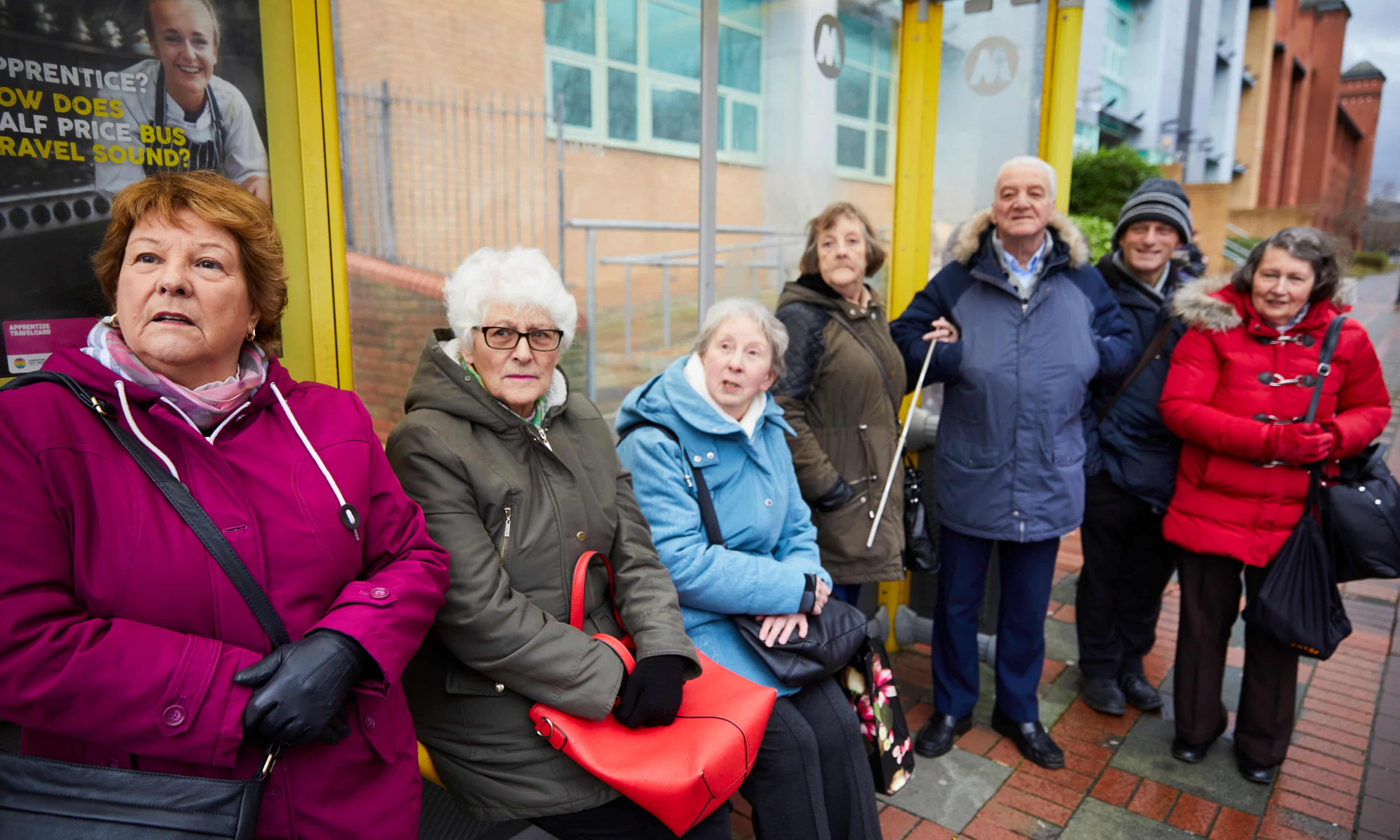
Brexit day in pro-leave areas: 'I live in hope it's the right decision'
Views from three constituencies that each, like the UK overall, voted 52%-48% for Brexit
by Josh Halliday, Steven Morris, Henry McDonaldBirkenhead
Arrive at Conway Park railway station and the examples of European funding are all around you. The station itself, opened in 1998 by the then European transport commissioner, Neil Kinnock, benefited from £6m of EU cash. It sits on Europa Boulevard and is round the corner from Europa House. It is a stone’s throw from the Europa Centre, now home to a huge Mecca Bingo.
These EU-funded landmarks were not enough to stop Birkenhead voting for Brexit by a slim majority of 52 to 48. Waiting for a bus outside Conway Park on Friday, there was little sadness about the decision.
“I’m relieved,” said Hazel Harris, 78. “We’ve lived with it both ways [inside and outside the EU] and I think a lot of people were fed up with these regulations and being ruled by people we didn’t know. People wanted to take back control.”
The once thriving Merseyside town is an anomaly on the Wirral, as the only constituency to vote leave. It sits across the River Mersey from Liverpool, which voted strongly to remain.
Locals say it is no coincidence that Birkenhead and Liverpool have experienced diverging fortunes over the past 30 years. While Liverpool has emerged as a gleaming city of posh shops and big business, its neighbour over the water has struggled.
In Birkenhead market, Janet French, 56, said: “You used to have your hand in God’s pocket” to get a stall there. Now, she said, most shoppers have left for Liverpool or the out-of-town malls an hour’s drive away, or shop online. More than two-thirds of the stalls were empty on Friday.
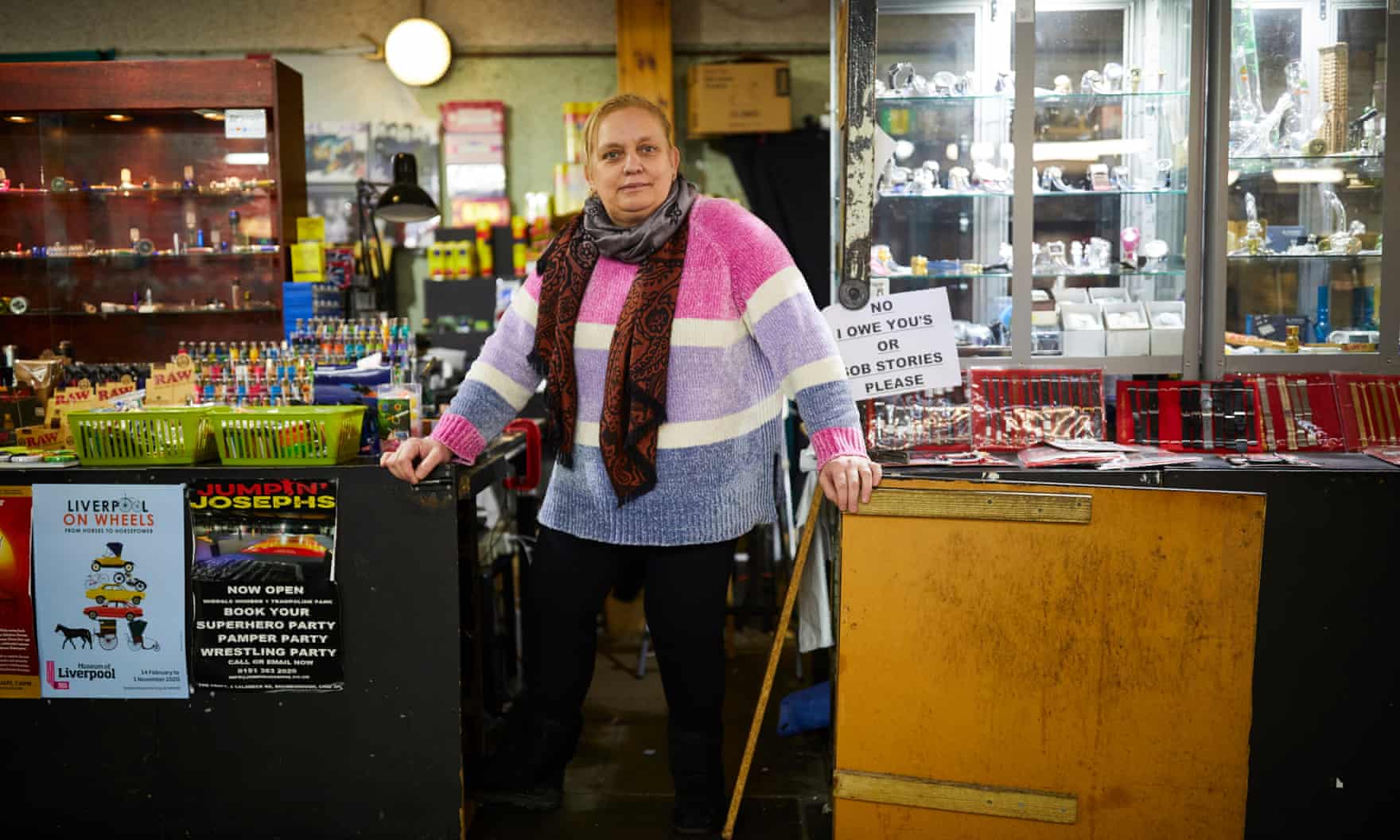
French, who voted leave, said she hoped Britain would regain its independence post-Brexit. “Everyone’s the harbingers of doom and gloom about it but I hope we can stand on our own two feet again.”
Pat Cleary, a Green party councillor for Birkenhead, said there was a noticeable trend of people in the worst-off parts of the town having voted to leave, after never voting before. In Birkenhead, the inequality is staggering: the mansions of Oxton are a short walk from some of the most deprived neighbourhoods in England.
This month Wirral council, which once branded itself “Euro Wirral” to attract EU funds, produced a 15-year masterplan to transform Birkenhead into a vibrant “urban garden city”. The town, like Britain, is at a crossroads.
Leaving Conway Park station, 31-year-old Alex said she was “kind of gutted” about Brexit but she hoped the country would come together again. “I just hope it settles down and that there’s recognition for the amount of working-class people that are not seeing the riches of the country,” she said. JH
Vale of Glamorgan
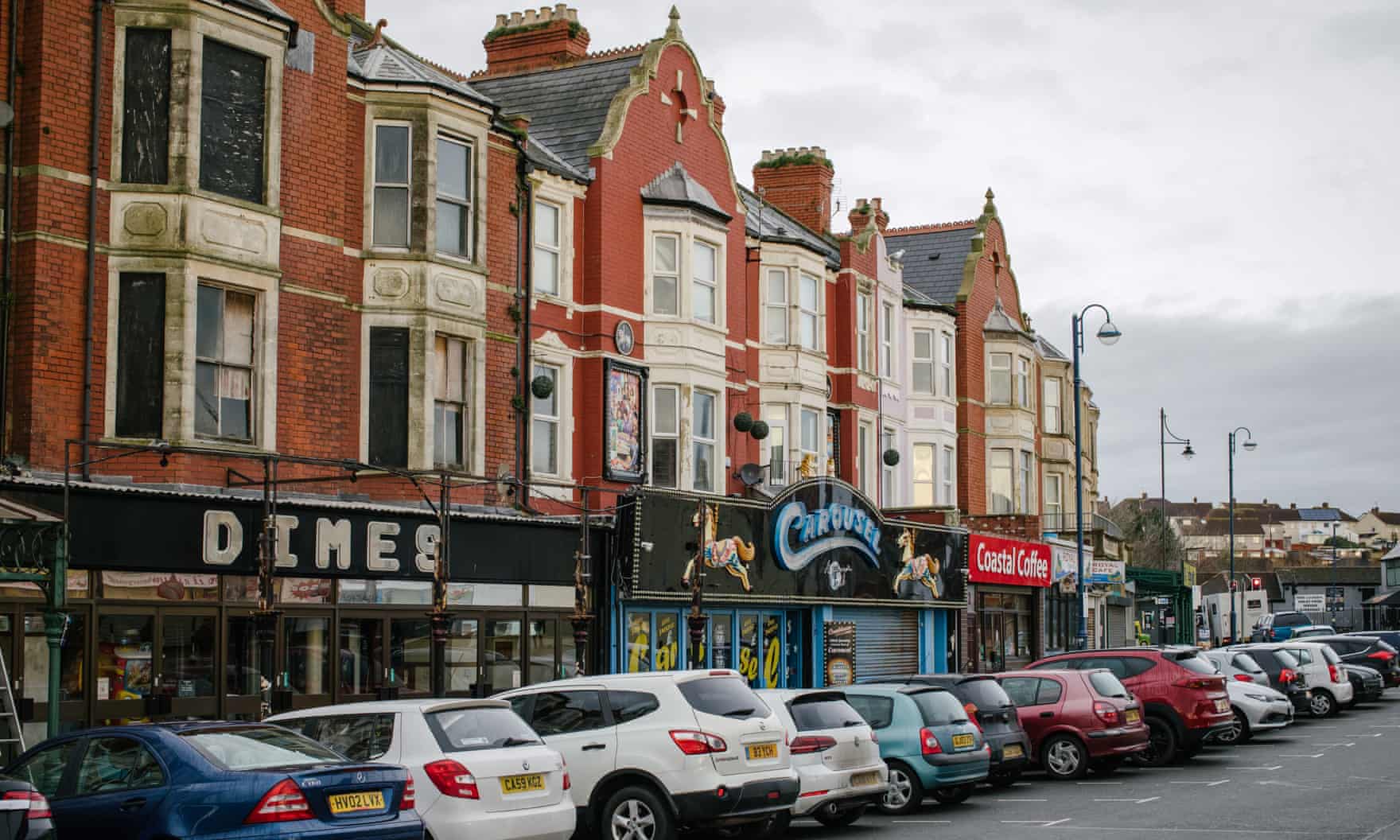
Emma Page was walking Brian the British bulldog along the beach at Barry Island. “To be honest, the whole Brexit thing has been tough for me.”
Tough because most of her family voted to remain while she backed leave. “It led to great discussions,” said Page, a 42-year-old local government worker. “My dad still says ‘that’s because of you’ when anything goes on. I live in hope that the decision I made is the right one and the divisions will heal, but it will take time.”
On a bright day at the Vale of Glamorgan seaside, most people were keen to speak of the future rather than the past. “We have to look forward,” said Paul Wright, 54, a part-time delivery driver. “I don’t think Brexit was about politics. It was about fear. People didn’t feel safe or comfortable because of migration and terrorism. We’ll see if people feel safer now.”
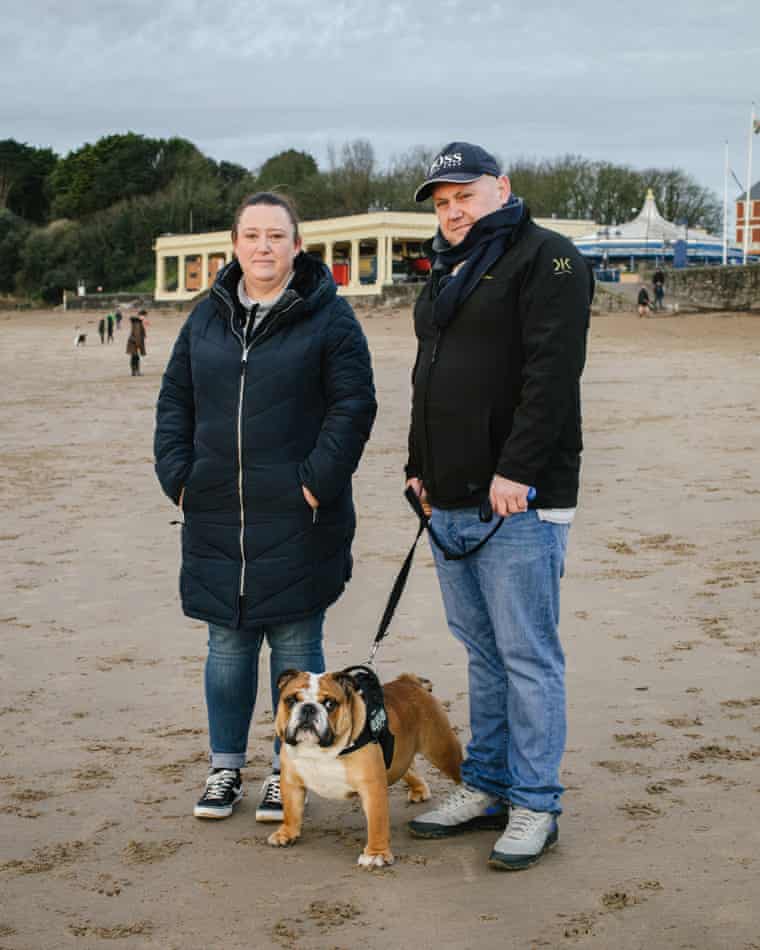
The logo for Marco’s cafe on the seafront is the Welsh dragon flag interlinked with an Italian one. Most tea and coffee drinkers there seemed chipper about the divorce from the EU. “This country belongs to the crown,” said Leonard Fowler, an 85-year-old retired engineer. “This is a happy day.”
Ryan Sutton, 35, who works at Cardiff airport, voted to leave. “It will potentially give us more control on immigration, laws etc but I don’t think it will change very much despite all the hype.”
He, too, has experienced division. “I’ve got friends who feel the opposite to me, which has led to some heated exchanges. There’s got to be a healing, we can’t remain divided. This will run its course, everyone will end up carrying on as they were before and the sooner it’s all done, the better.”
Five miles inland, Abi Reader was getting on with the job of looking after her dairy cattle at Goldsland farm. She is a passionate supporter of the EU, believing Brussels “gets” agriculture more than London or Cardiff.
“For the moment, nothing really changes,” she said. “My milk will be picked up, the farm will run smoothly. But there’s a lot of concern about the big picture when the full impact hits. I’m worried about trade deals, worried that farms will be driven out of business.”
In the market town of Cowbridge, Sally Stephenson, the award-winning boss of the Pencil Case stationery shop, was defiantly putting up her EU flag bunting. “My overwhelming feeling is sadness,” she said. “Sadness because our country has been conned. Sadness because we are all about to lose so much.
“I’m incredibly worried about what the future holds. If we leave the single market and the customs union, businesses large and small will find it much harder to keep trading profitably and many will go under.”
She said she would light a candle at 11pm. “I will never give up hope that one day we will return. I will always be European.” SM
Upper Bann
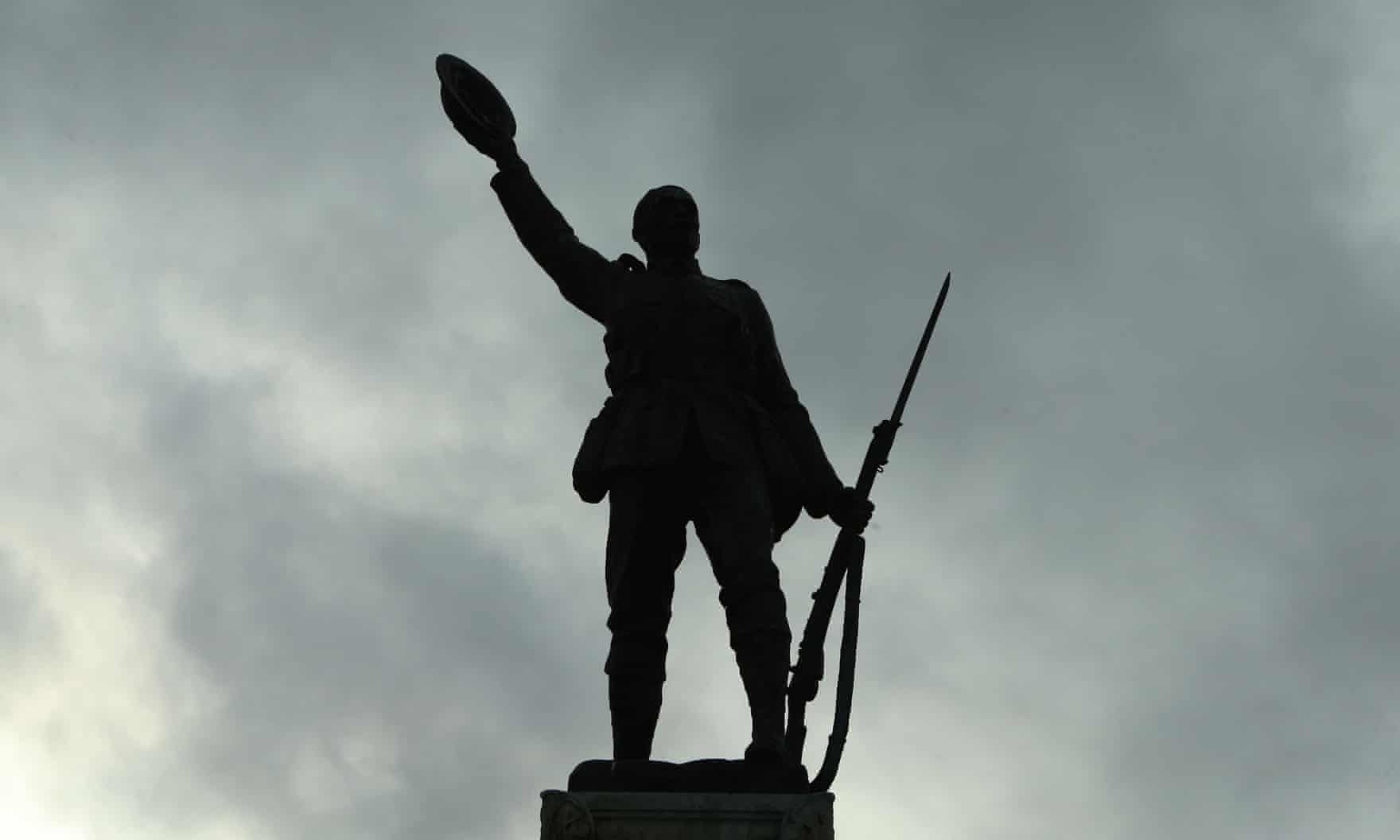
Under the shadow of Banbridge’s war memorial, a sculpture of a soldier who appears to be using his helmet to tip farewell to past conflicts, smokers outside a pub expressed relief that Brexit was finally done. The County Down market town is part of Upper Bann, whose voters replicated the national outcome of the EU referendum in 2016.
Paul “Skins” McGuinness was only concerned about how being out of the EU might affect his summer holiday plans. “As long as the plane takes off and lands in Spain then I will be happy again … and of course as long as it brings me back home without any hassles.”
McGuinness, 40, said he was “sick, sore and tired” of turning on the TV and radio to hear about Brexit. Pointing to his Liverpool scarf, he added: “Don’t ask if Brexit is going to work, I don’t know and I don’t care. I’m sure glad I won’t hear that much about it any more. The only thing I’m certain is that the Reds have won the league.”
His friend Robert Murray, a retired fireman in his 60s, said: “Like many people in this town I’m happy with my life and I don’t let things like Brexit annoy me. It’s done. People will get by. There will be no hassle.”
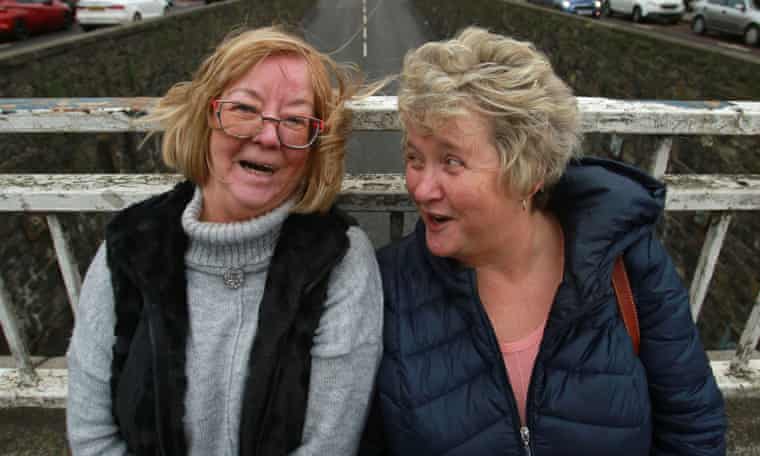
Geralyn Ross and Eileen Steele were enjoying a day out shopping in Banbridge searching for post-Christmas bargains. As in other towns on these islands, there were signs all around of the struggles that high streets are enduring.
Across from Houstons department store, which was advertising 70% off in a closing down sale, Steele said she was reassured there would be no restrictions on movement across the Irish border. Banbridge is 20 miles from the frontier. “There were scare stories about having to get a visa to travel south, and we would go shopping often down to Dublin. But that’s turned out not to be true.”
Ross interjected to remind her that the rising cost of living might be due to Brexit. “I’ve noticed things like milk going up in price and wonder if we will get it in the pocket now that we are out … but we’ve been through harder times in this place, much harder times,” she said, referring to the Troubles and a number of large bomb attacks that devastated the centre of this mainly unionist town in the 1970s, 80s and 90s.
Almost everyone who stopped to speak about Brexit day was sceptical of the idea that leaving the EU might propel Northern Ireland back to war. HM